People in the music industry will take advantage of you.
“Ignorance debt” is a term coined by viral business author, content creator, and founder of Acquisition.com Alex Hormozi. Every time you make a mistake, lose money, or waste time focusing on the wrong priorities, you pay down your ignorance debt.
If you do not pay down this debt through education, experience, or massive action, you will not move in the direction of your dreams.
Today’s newsletter is first in a miniseries I’m calling “Fasten Yo Bag.”
In this series, I will show you how I ensure that I am paid for my services as an creative worker.
I got scammed by a fellow artist about a month ago. I paid down some of my ignorance debt.
By the end of this newsletter, you’ll have an actionable framework for obtaining important information before you begin a recording session.
I am confident that this will help you avoid getting scammed in the recording industry.
The Story
To fully understand this story, you need to understand the different between writing music and recording music.
Writing music is a leveraged skill. If you write music that materially contributes to the composition of a song, you are entitled to writing credit and a small percentage of equity.
Recording music is a less leveraged skill than writing. Songwriters compose and provide sheet music to session musicians. Session musicians are then paid a fee (usually per hour) for their work.
If an artist or songwriter does not give a session player sheet music to perform from, the situation becomes nebulous.
Who wrote the string part if there is no sheet music?
As the recording artist, if you come up with your own part, does that mean you deserve writing credit?
Typically, if an artist does not have the budget to pay a session musician, they offer publishing equity as a form of compensation for their work. People wouldn’t expect professional musicians to perform for free, right? RIGHT?!
Well, this story is about that ambiguity.
It’s shortly before noon on Feb. 6th and I get this cryptic text.
First red flag—they do not identify themselves or the person that referred me. I ignored the flag on the play.
I ask for more details. I receive the following response:
Skeptical still, I press for more information.
Second red flag—he ignores both of my questions about payment. That’s 2 red flags ignored.
I arrive the studio on Saturday, Feb. 10th around 14:15. The session start time had moved around a few times, so I knew that things would be on the loose side.
I was about to learn that loose was a generous description.
My string player friends and I sat around in the studio for a while, waiting for something to happen.
The artist, Hassan, directed us to listen to the song on loop to get a feel for it. No key signature, no lead sheets, no sheet music, and no further guidance. His engineer hit play in the booth, and Hassan walked away.
We listened to the song about a half-dozen times before Hassan returned. He then asked us to play (read: compose and perform) a short, rhythmic part for his verse, and then play (read: compose and perform) a long legato part for his chorus.
After exchanging an incredulous look amongst ourselves, we get to work. We wrote our parts to the music by ear and on the spot. This constitutes writing, wouldn’t you say?
We finished our arrangement and sat around for a long time. Then, we recorded audio and….video??!!!
If you did not know, video shoots are a separate service from recording sessions. A video recording was never discussed in relation to this session. Another red flag.
You can watch the video here if you’re curious.
Did you notice how he didn’t even tag me in this video? Not even a little credit? That’ll come into play in a second…
We did maybe 3 to 5 run-throughs, recording video AND audio simultaneously.
I left the session angry. Hassan ignored my initial questions about payment.
“Are you hiring me as a session player? If so, I would be happy to give you my rate. Are you hiring me as a writer? I’m cool with either, I just want to understand.”
He never answered me, so how was I supposed to know? I asked a colleague from that session about their compensation, and I took notes.
As I said before, it is customary to give session players publishing rights if you do not have a budget to pay them for the session. It’s just good karma to pay them something.
I shot a text to Hassan later that night. Here’s how that conversation went.
I did not receive a response for 10 days, so I reached back out. I didn’t have a lot of faith at this point, but he got back to me.
We get on the phone around 17:00 on Feb. 26th. It was a very unpleasant conversation. He talked to me aggressively—asking me if I talked to anyone from the session about payment.
We go back and forth and he finally agrees to send me a document stating that I can get credit and points for the song.
But TVK, you said you got scammed. He sent you the agreement like he said he would! What gives?
Well, look at what he sent me…
2-page contract, no signature. I’m not even sure if this is enforceable.
Where I Went Wrong
I assumed that the artist had an understanding of the value I bring to the table, and that I would be fairly compensated.
I did not stand up for myself when it mattered most (right before I played anything).
Most importantly, I didn’t have a framework or a system rely on to protect me. I had to pay my ignorance debt.
The System: “Fasten Yo Bag” Questioning Flowchart
View it here. This system was developed through the advice of my wonderful friend Yasmeen Al-Mazeedi.
So, when someone asks you to play strings on an artist project, how do you avoid getting scammed like me? Follow this process.
DO NOT have this first conversation by phone. Communicate through text. This will allow you to have some space and do some research as you’re messaging and negotiating.
Get all the information before you disclose your rates.
Follow the flowchart above and ask each of these questions before you do anything else.
Here are some extra notes about the flowchart that you should know:
The “majors” are Warner Music, Sony Music Entertainment, and Universal Music Group. A subsidiary is a business that is owned by a parent holding company. The majors own A LOT of subsidiary businesses.
Adopt the mantra “if I’m not reading, I’m writing.”
If the artist does not have sheet music for a session player to read, ask for the track before the session. Take your time to write a part, and bring it to the session. This doubles as great preparation and proof of the work you put into the art.
Negotiation is a topic for another newsletter. What I will say is this: do not be afraid to ask for more than you’re comfortable with. Anchor your prospect at a high rate and let them negotiate you down.
Take into account how busy you are, the turnaround timeline for their ask, and the opportunity cost of locking up the date and time to provide the service.
If you’re writing music, you can receive a buyout fee, publishing %, or a combination of the two.
For buyouts, I charge a premium rate for my services.
Finally, if you’re working with an artist that has a distribution, publishing, or indie label deal, do your homework on the artist:
See how many Spotify listeners they have.
See how many followers they have across all their social platforms.
Do not ask for points if the artist has fewer than 1M monthly listeners OR if they don’t have a recording budget at all.
If they have fewer than 1M monthly listeners, they’re probably not going to generate enough listens to make the effort worth the money.
If they don’t have a recording budget at all, they might not have the resources to predictably generate listens for their music.
But still, a little equity on a song is better that 0 equity and $0k.
Action Plan:
Develop multiple tiers of pricing for your recording, writing, and video shoot services.
Indie (low) Fee
Standard Fee
Premium (+50%) Fee
Ask questions and follow the flow chart. Get the information you need.
Pitch your rates for all services involved.
Get it in writing before you step foot in the studio. Reply to this email to me know if you’d be interested in a sample contract template. I would be happy to create one for ya’ll if you would find it helpful!
Make sure everyone signs the agreement.
Fasten Yo Bag
Coming Up Next…
Late last year, someone didn’t pay me, so I sued them—and won.
2 weeks before our court date, the money hit my account…70 days late.
Next Friday, I will show you how to “Fasten Yo Bag” when someone breaks contract and ignores your emails.




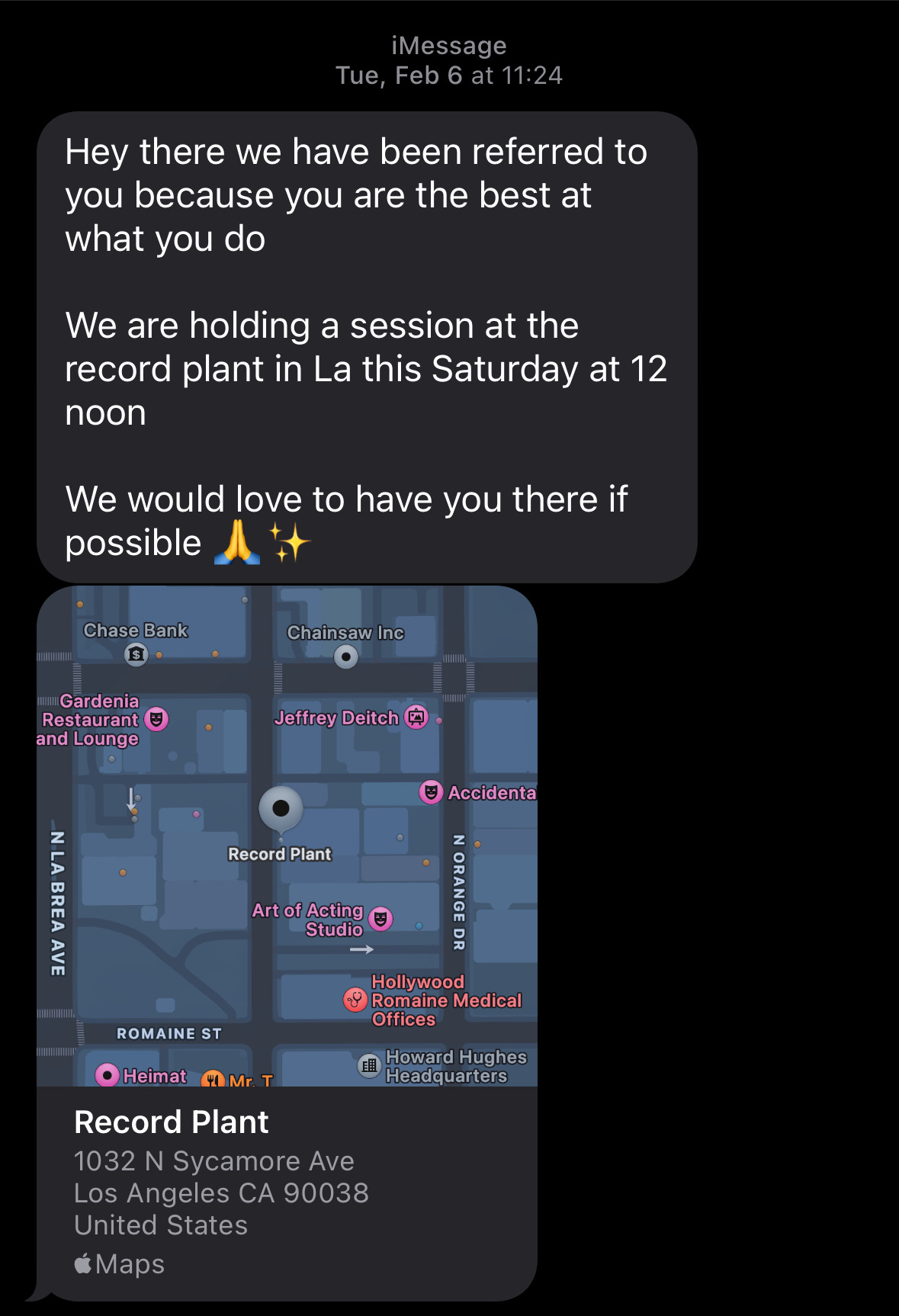
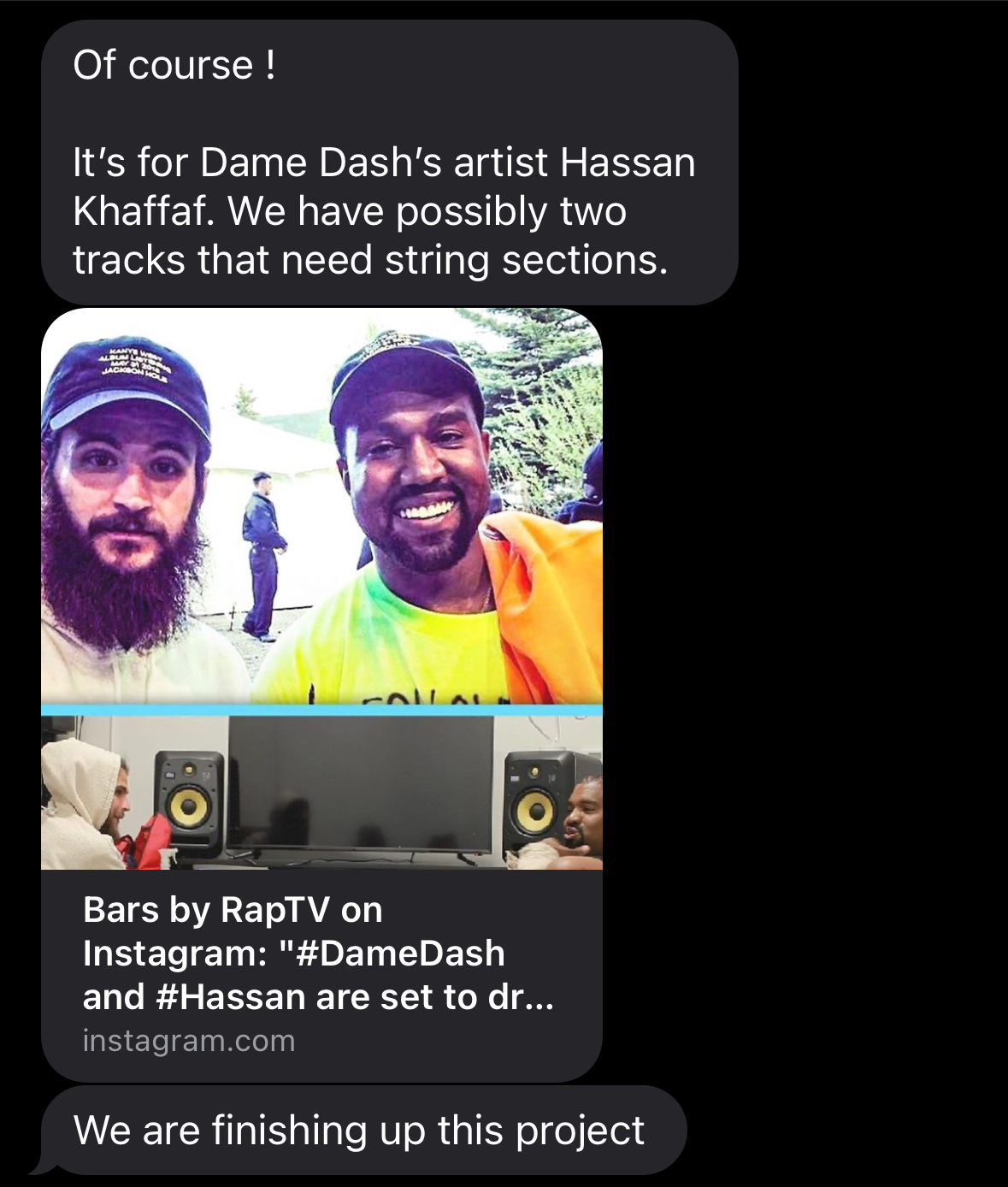

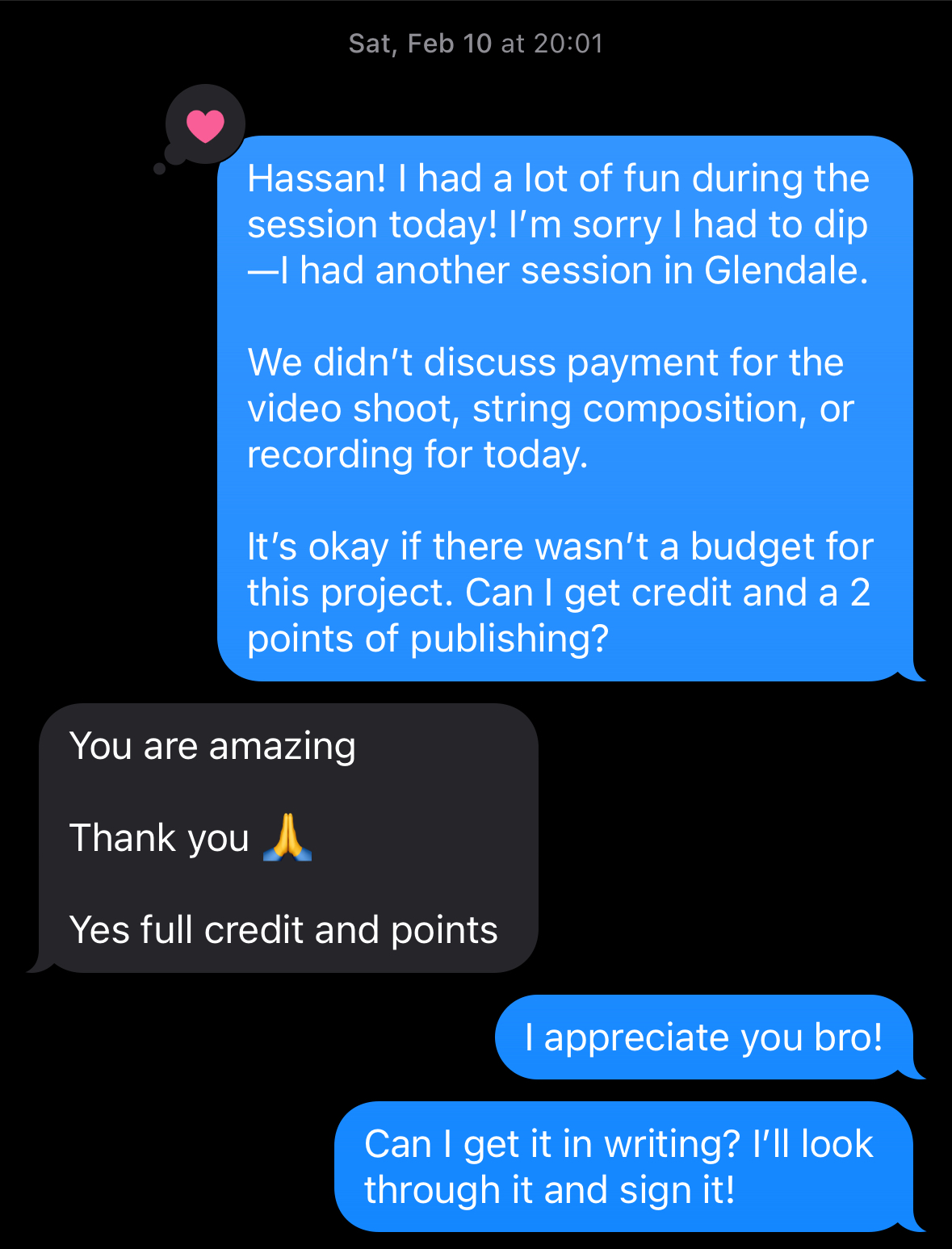
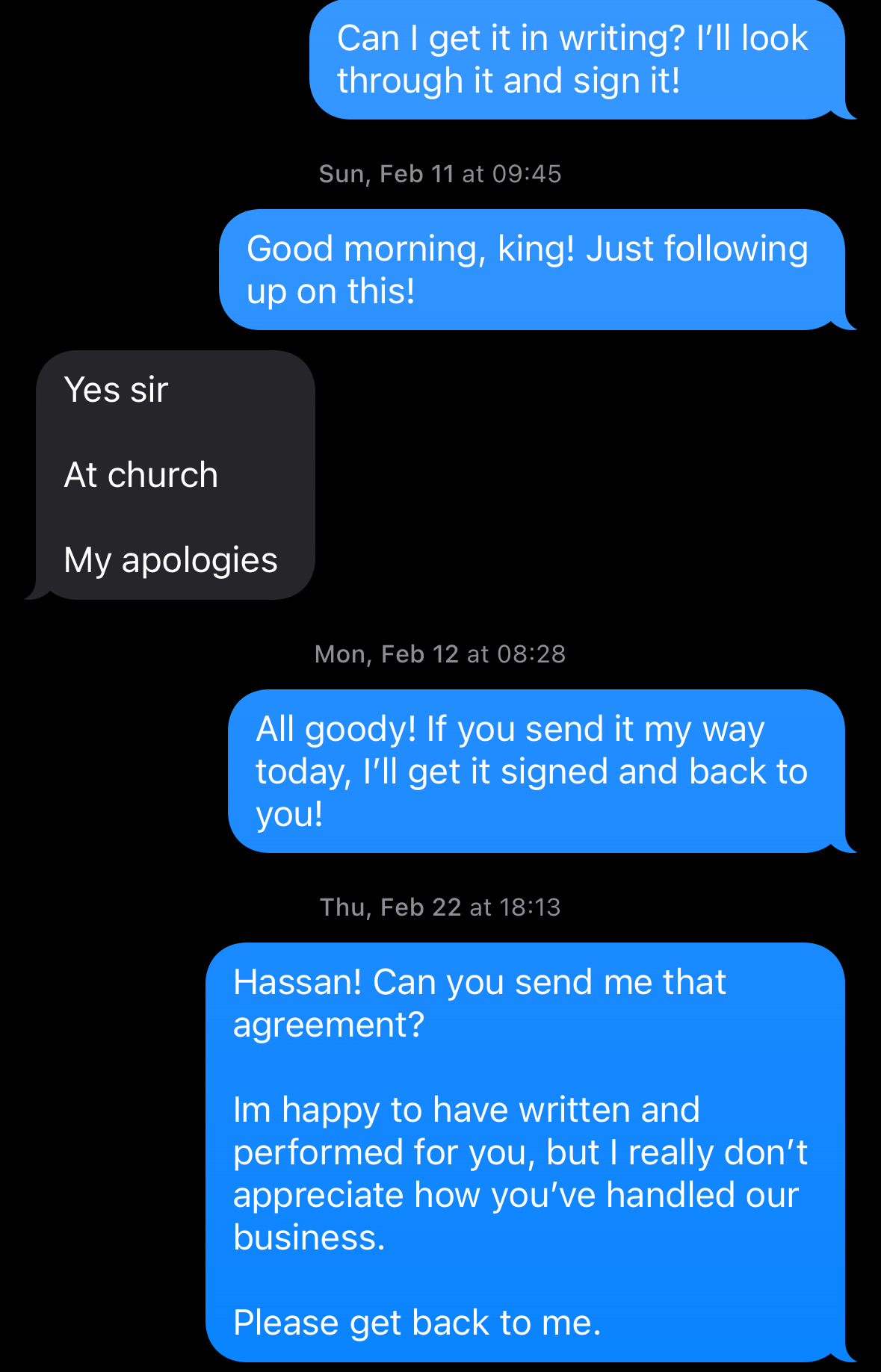
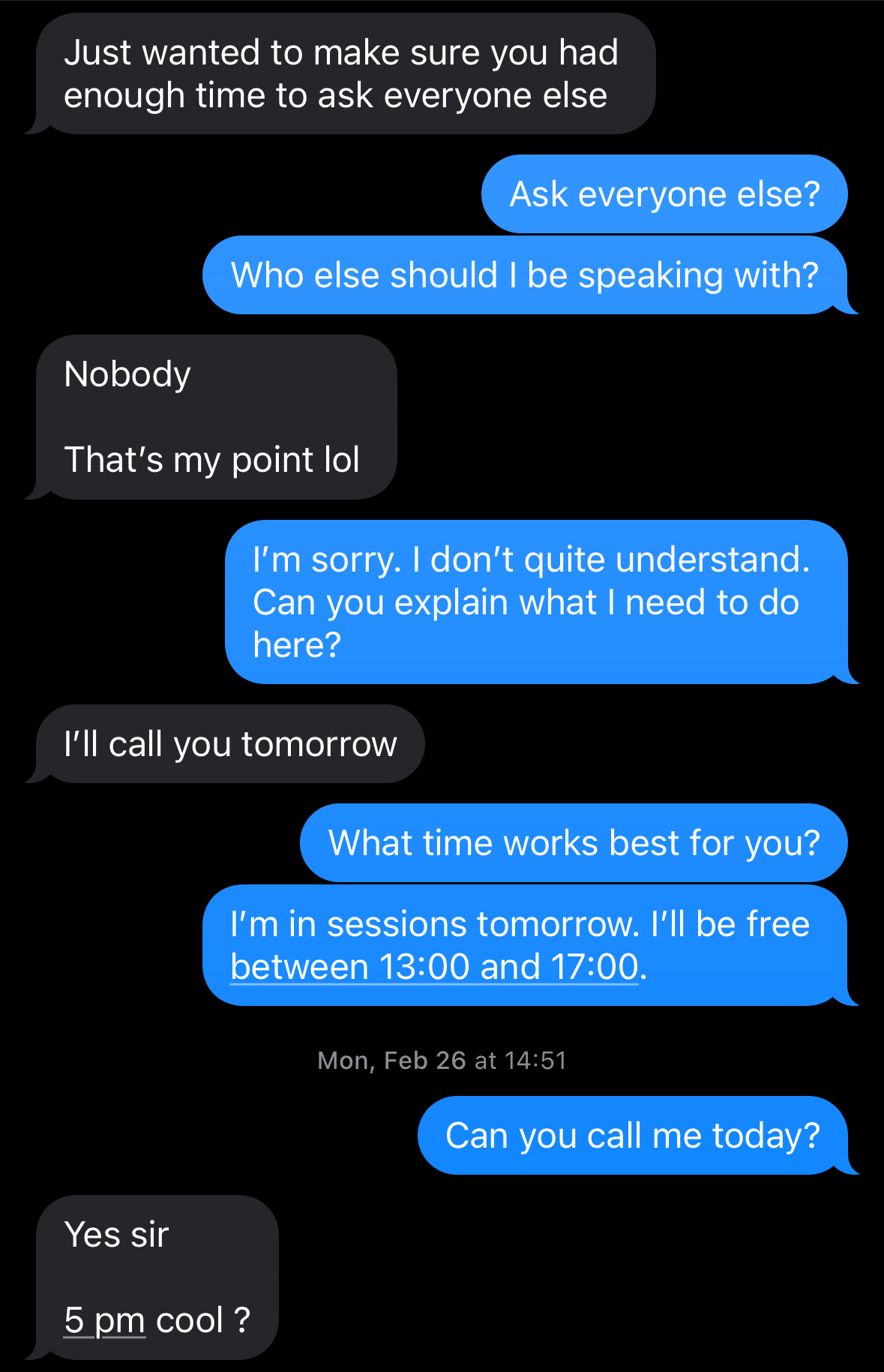

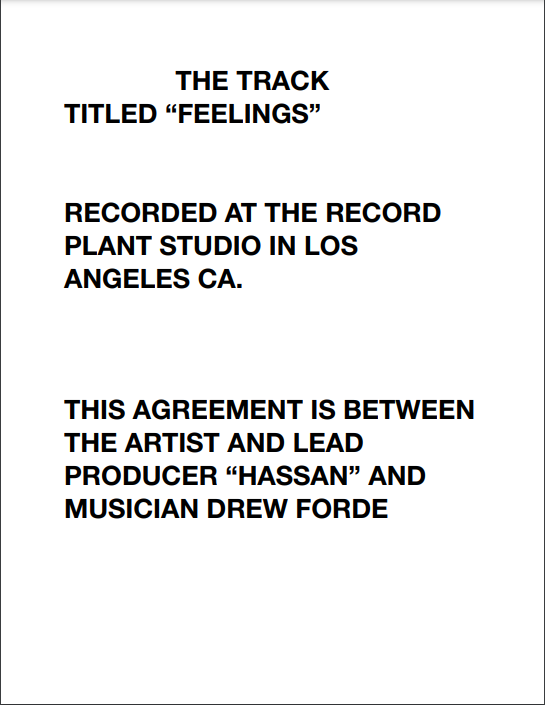
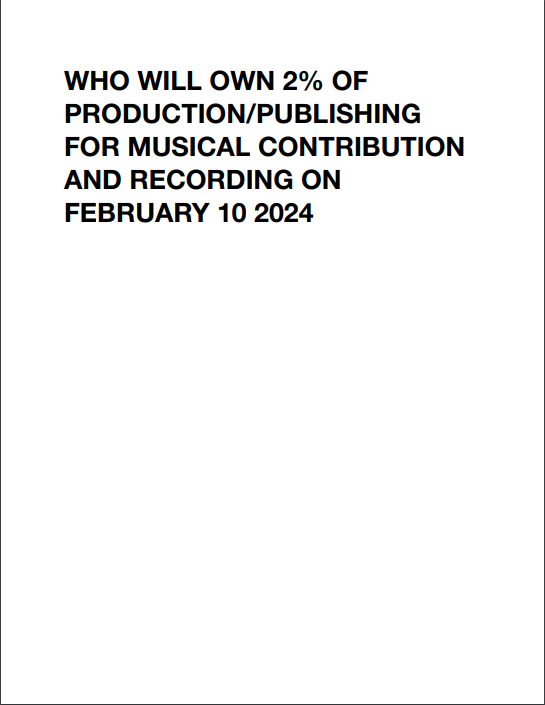

Thank you for this! Looking to learn how to arrange and write out parts so this post will be helpful in the future when I get out there!
So precise and helpful! Thanks Drew!